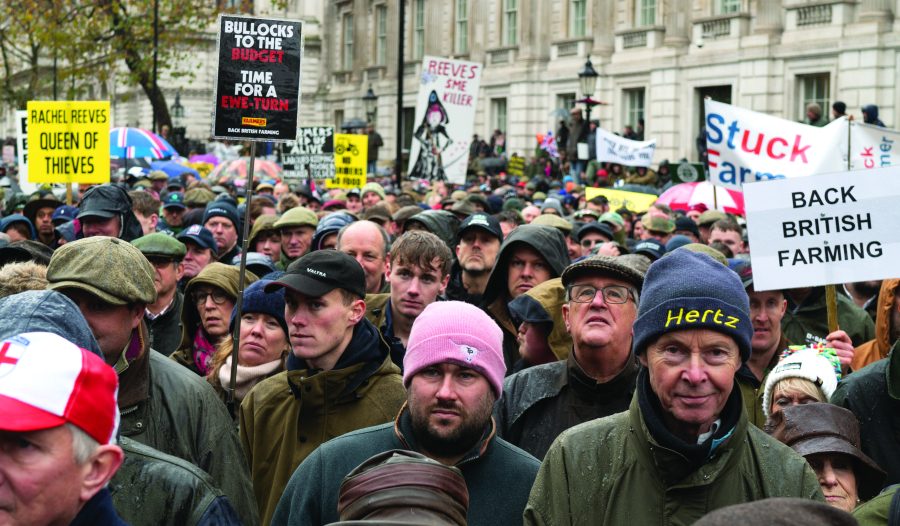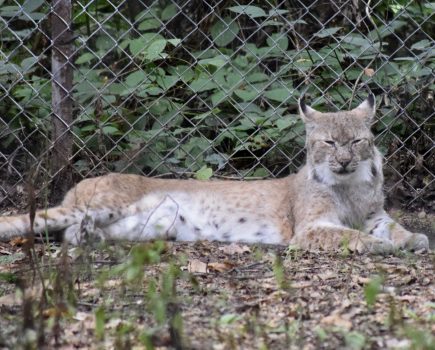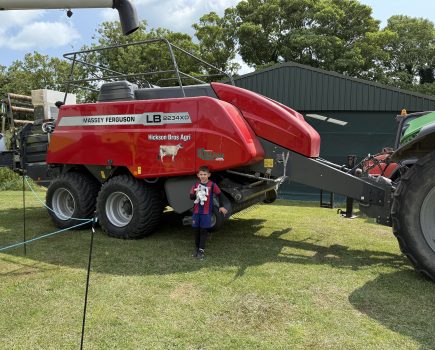“May you live in interesting times” is an ancient curse. Times are very interesting just now. The new Government, faced with a fiscal black hole, has retreated from its pre-election promises and done the usual Labour thing of raising taxes that will hit businesses including farming. No, I am not a deregulating, libertarian disciple of Liz Truss. A civilised society needs taxes to provide good public services and there isn’t a cheap option.
A country’s citizens are most content when the income gap between the richest and poorest is a multiple of four or five. This is true of Scandinavian countries where the standard of living is high, yet the wealth gap remains equitable. This is something encapsulated by ‘doughnut economics’, expounded persuasively by the Oxford economist Kate Raworth.
By contrast, the income gap in the UK has increased staggeringly, with CEOs and owners paid 60 to 100 times more than some employees. Those at the top of the pile have become disproportionally rich at the expense of others who see their living standards eroded. The result has been the disillusion, discontent and anger that produced the Labour landslide.
So what has all this got to do with farming, and South East farming in particular? Well we can’t escape politicians. Consider our climate; heating will accelerate, and we have, this year, already reached the ‘threshold’ of a 1.5°C average rise.
Weather will be increasingly erratic, with more events of the kind that devastated Spain. Can we really expect oil producers to turn their backs on their source of wealth? No. The COP conference in Azerbaijan has, sadly, been an empty exercise in ‘green-washing’. Farming gets more difficult.
I believe it was a mistake for the Government to raise national insurance charges as it will dampen productivity and affect food production. Government has missed a golden opportunity, offered by the scale of Starmer’s election mandate, to close tax loopholes, allow councils to tax the largest properties, tax the supremely wealthy and increase taxes on the likes of gambling, airline fuel and private planes to plug the ‘black hole’.
The attack on inheritance tax (IHT) relief on farmland is misguided, for it disproportionately affects smaller farms that demonstrably perform better for the environment. IHT relief inevitably attracted too much interest from non-farmers. Prices rose, exceeding the capacity to deliver a return on investment through farming.
We should not consider IHT relief sacrosanct. Changes could be acceptable, but the proposed threshold is absurdly low, even with allowances. A higher threshold is essential to avoid damaging real farming. A graduated tax would address distortions produced by non-farmers and corporates simply seeking wealth protection.
The Government proposes to support carbon capture, which has the hallmarks of an expensive, inefficient fig leaf promoted by fossil fuel industries. If their scheme really is what they claim it to be, then it is for oil to invest in it. The Government should stick to schemes that reduce fossil fuel use and the established methods to enhance natural sequestration that farms can deliver.
Commentators will protest loudly about food security. It’s important, but no more so than global heating, water management and biodiversity loss. Our very survival depends on those, too. Concentrating on one will not suffice.
Should we review the agricultural business model of large producers, long supply lines and huge outlets, to a more localised system with smaller outlets? The former is destructive for the environment while the latter less polluting. For example: what if every farm hosted a one- or two-hectare market garden. Could that work? Would it offer more local employment? Oxford colleges and pubs are already actively seeking local produce direct from growers.
Farmers will need to be even more resilient and nimble to tackle climate change, biodiversity loss and the challenge of feeding us all while remaining sane. We have the knowledge and capacity to lead. Let us hope government will listen and support our efforts to deliver the full range of public goods.
For more like this, sign up for the FREE South East Farmer e-newsletter here and receive all the latest farming news, reviews and insight straight to your inbox.







